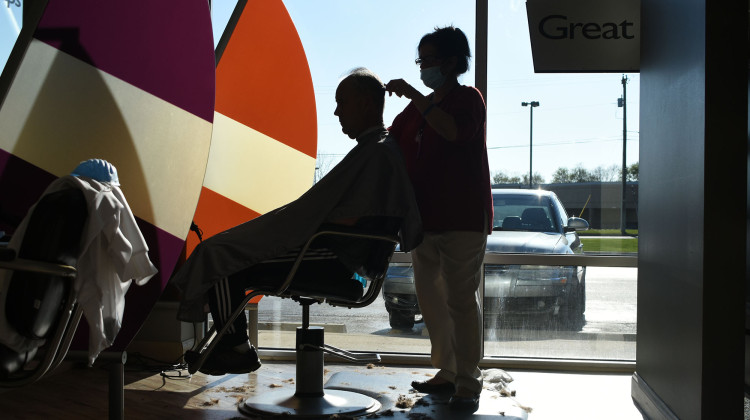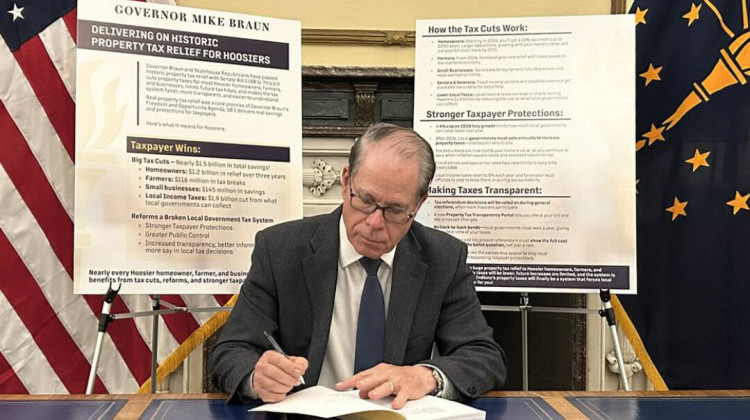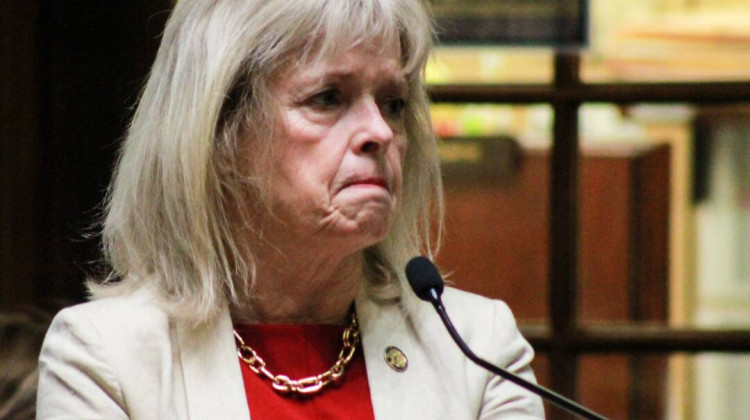
Indiana is one of 43 states that requires at least 1,500 hours of education prior to taking a cosmetology licensing exam.
FILE PHOTO: Justin Hicks / IPB NewsCosmetology educators and students told lawmakers this week they don’t want the number of hours required to get a cosmetology license reduced.
Forty-three states require at least 1,500 hours of education before taking the cosmetology licensing exam. Indiana is one of them — and Rep. Tim Wesco (R-Osceola) said that’s the wrong way to educate.
“Doesn’t matter if you’ve done all the practicals; doesn’t matter if you have all the proficiency,” Wesco said. “But you’ve got to put in so many hours.”
Wesco’s bill, HB 1329, would reduce the number of required hours by a third, down to one thousand. No one spoke in favor of his bill, but a couple dozen cosmetology teachers and students showed up to oppose it.
Carly Cummings is one such student, from the Salon Professional Academy in Evansville.
“You’re cutting their classes like business building, building our books, our clientele that we get beyond the floor and financial literacy classes that are for our success in the future,” Cummings said.
Two states have reduced their hours to 1,000 — Texas and, more recently, California. Tricoci University of Beauty Culture COO Larry Foster said the change has hurt students in Texas.
“There are some challenges with longevity with the careers once they graduate,” Foster said. “They’re finding that the placement is an issue because the students tend to job hop after, because they’re not really prepared for the industry.”
READ MORE: How do I follow Indiana’s legislative session? Here’s your guide to demystify the process
Join the conversation and sign up for the Indiana Two-Way. Text "Indiana" to 765-275-1120. Your comments and questions in response to our weekly text help us find the answers you need on statewide issues, including our project Civically, Indiana.
Wesco said reducing hours is partly a financial issue — he said cosmetologists have contacted him about the cost of education.
“I’ve had a lot of correspondence, such as this one from a few years ago from a cosmetologist who wrote ‘I absolutely agree that the cost of schooling is outrageous and is a huge economic barrier for many would-be students,’” Wesco said.
But Katie Hammonds, who teaches at Aveda Fredric’s Institute, said reducing hours would hurt students financially because of the way federal financial aid is calculated.
“It could be roughly around $4,000 that a student would lose in Pell grants if they go to 1,000 hours,” Hammonds said.
The House Committee on Employment, Labor and Pensions intended to vote on the bill Wednesday. But a few committee members were absent and the bill would have failed.
Committee Chair Heath VanNatter (R-Kokomo) said he’s not certain what the bill’s future will be this session. It could come up for a vote in committee in the next few weeks.
Brandon is our Statehouse bureau chief. Contact him at bsmith@ipbs.org or follow him on Twitter at @brandonjsmith5.
 DONATE
DONATE






 Support WFYI. We can't do it without you.
Support WFYI. We can't do it without you.